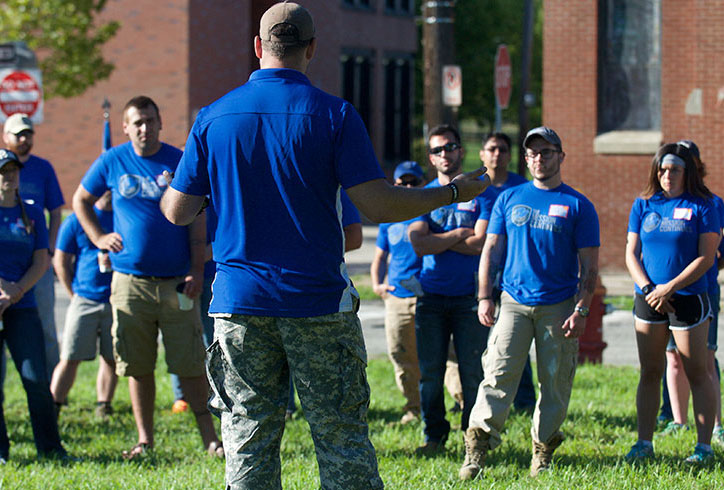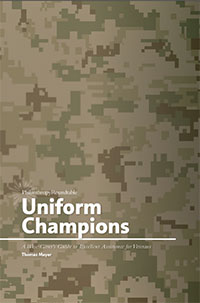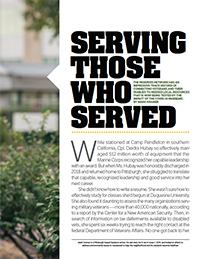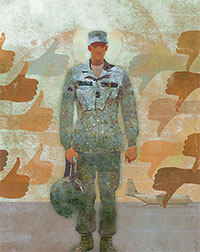In our veteran-focused grantmaking, we work to connect veterans with opportunities to lead and serve in our community. We are committed to making systems that care for veterans and military family members transparent and accountable, where the health and wellness of veterans supersedes the needs of any organization or individual. We work to refocus shallow stereotypes of veterans as broken or in need by highlighting their formidable talents. We partner with organizations that challenge them in positive ways.
We focus primarily but not exclusively on post 9/11 veterans to increase the amount of proactive and preventive resources available. The Pew Research Center’s October 2011 report, “War and Sacrifice in the Post-9/11 Era,” identified 44 percent of the post-9/11 veteran population as “at risk” as they leave the military. But this confirms that 56 percent of returning veterans reintegrate into civilian life seamlessly. Also contrary to popular perception, the overwhelming majority of the 44 percent identified as “at risk” do not struggle with significant mental health, physical health, or housing crises. Rather they are struggling, in large part, because of this faulty perception. This results in an inability to penetrate closed social networks, a misunderstanding of how their well-earned skill sets can be leveraged by employers, and a desire to serve without valued and vetted opportunities to do so.
The opportunity to support veterans and military family members is huge. One in 10 current residents of our region has served in the armed forces. They are all surrounded by families and friends. Collectively, this represents a large part of our Pittsburgh community and creates an incredible moment to leverage this resource to strengthen our city and its revitalizing neighborhoods.

 The Mission Continues participating in the National Day of Service in Homewood. Photo by Sean Means
The Mission Continues participating in the National Day of Service in Homewood. Photo by Sean Means

 In 2015, the
In 2015, the  Uniform Champions: A Wise Giver's Guide to Excellent Assistance for Veterans by Thomas Meyer was published this year by The Philanthropy Roundtable. This is a follow-up volume to their first guidebook on this topic, Serving Those Who Served. Uniform Champions chronicles the most successful funders in this area and what they've learned through real-life experience about the best ways to boost men and women entering civilian life after military service.
Uniform Champions: A Wise Giver's Guide to Excellent Assistance for Veterans by Thomas Meyer was published this year by The Philanthropy Roundtable. This is a follow-up volume to their first guidebook on this topic, Serving Those Who Served. Uniform Champions chronicles the most successful funders in this area and what they've learned through real-life experience about the best ways to boost men and women entering civilian life after military service. "
" "
"



